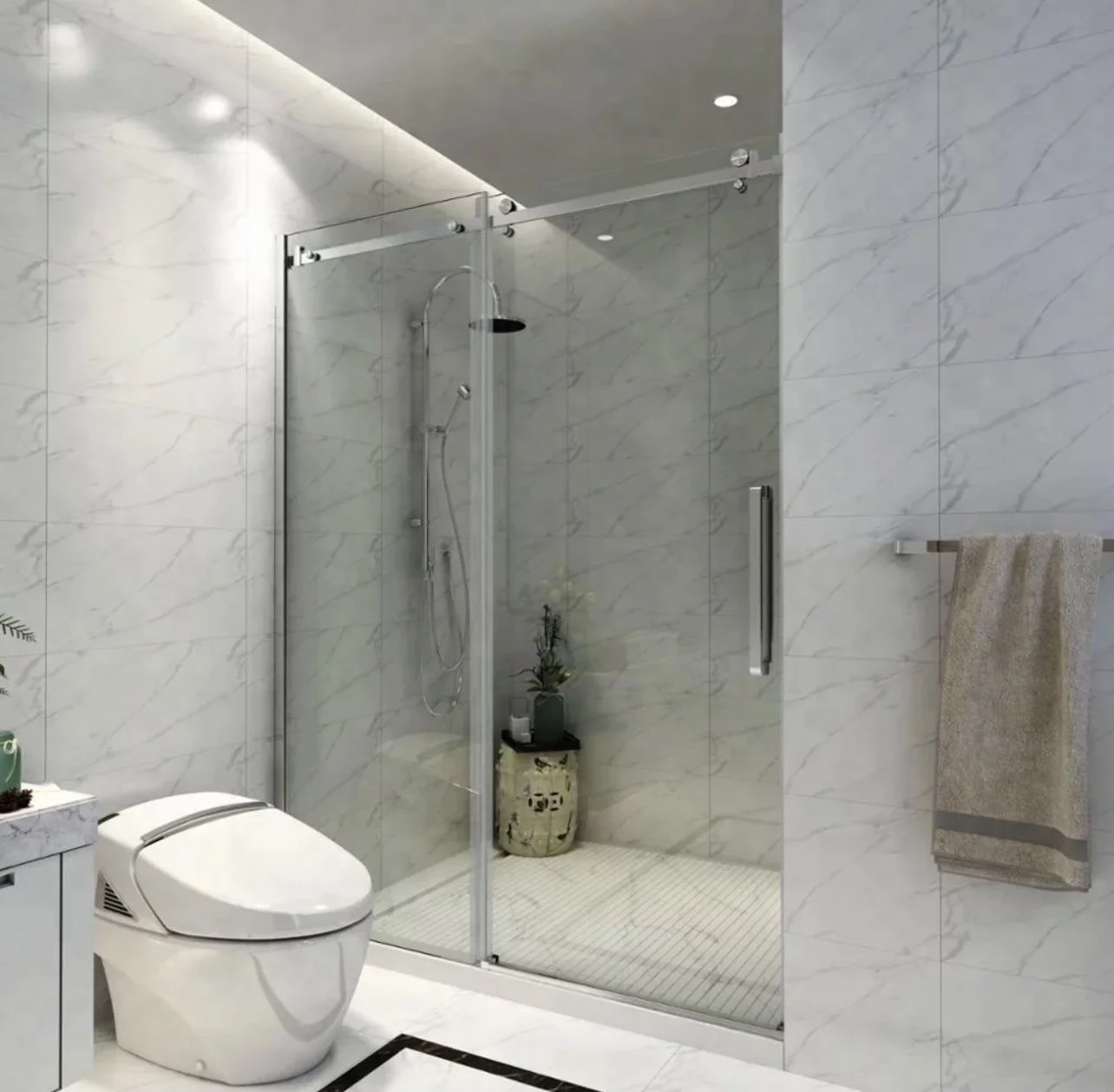Choosing the right components—such as hinges, handles, and sliding systems—ensures a durable, seamless installation that complements your space's design.
A Comprehensive Guide to Glass Shower Door Hardware
When designing or updating a bathroom, choosing the right shower door hardware is just as important as picking the glass.
Good quality hardware improves the shower enclosure's function, durability, and appearance.
To choose a glass shower door, you need to decide between frameless, semi-frameless, or fully framed options. It's important to understand the hardware parts. This knowledge will help ensure a smooth and stylish installation.
The Importance of Quality Hardware in Glass Shower Doors
The hardware for glass shower doors is important. It keeps the glass secure. It also affects the safety, strength, and appearance of the shower enclosure. Good hardware makes the shower door work well and last longer, while also looking stylish and modern.
Choose stainless steel, brass, or anodized aluminum hardware for the bathroom. This will prevent corrosion and tarnishing in the high-moisture environment.
These materials are strong, durable, and enhance the clear design of glass shower doors.
Key Components of Shower Door Hardware
Hinges and Pivots
Function: Strong hinges and pivots help the glass door to open and close easily. The choice between a hinged door and a pivoting door depends on the available space and desired aesthetic.
There are different types of hinges, such as wall-mounted, glass-to-glass, and self-closing hinges. Each type offers different benefits in installation ease and door movement.
Stainless steel or solid brass are common materials for hinges, providing both strength and a sleek appearance.
Handles and Knobs
Handles and knobs are the most visible elements of shower door hardware, making them an important design choice. Options range from minimalist bar handles to more decorative knobs, allowing for customization according to the bathroom's style.
Beyond aesthetics, handles and knobs need to be easy to grip and operate, even with wet hands. The ergonomics of these components should not be overlooked, as they contribute to the overall user experience.
Use stainless steel or brass for handles and knobs to prevent corrosion and keep them in good condition for a long time.
Brackets and Channels
Brackets and channels are used to secure fixed panels of glass within the shower enclosure. They are essential for maintaining the stability and alignment of the glass.
People commonly use wall brackets, glass clamps, and U-channels to affix glass panels to walls or floors. Each type offers different benefits depending on the design of the shower door and the desired level of framing.
Stainless steel or anodized aluminum are preferred materials because they are durable and resistant to moisture.
Towel Bars and Pulls
Towel bars and pulls are useful for hanging towels and providing extra stability for the shower door. They serve a dual purpose.
Match these components with handles and knobs for a cohesive look. Some designs incorporate towel bars directly into the handle, providing a streamlined and space-saving solution.
Use materials that resist rust and match the other hardware for a consistent look.
Door Seals and Sweeps
Door seals and sweeps are essential for preventing water from escaping the shower enclosure. Typically, people install them along the edges of the door and the bottom to create a watertight barrier.
Options for shower door seals include vinyl, polycarbonate, magnetic seals, and bottom sweeps to keep water inside the shower.
It is important to maintain shower seals to keep them watertight. Shower seals may not be as noticeable as other parts, but they still require maintenance. This will help prevent water leaks and damage. Regular maintenance can prolong the life of shower seals.
Sliding Systems:
Sliding door systems are ideal for bathrooms where space is at a premium. These systems allow the door to glide smoothly along a track, eliminating the need for swing space.
Sliding systems include top-hung tracks, bottom-rolling tracks, and soft-close mechanisms. The choice of system depends on the specific layout and design of the bathroom.
The tracks and rollers need to be strong and smooth. Manufacturers usually make them from stainless steel or anodized aluminum. This ensures they last a long time and protect against rust.
Tips for Choosing the Right Shower Door Hardware
Consider the overall design of your bathroom when selecting hardware. A simple, frameless shower door suits modern styles. Traditional bathrooms look better with decorative or classic designs.
Given the high-moisture environment, choose hardware made from corrosion-resistant materials to ensure it remains functional and attractive over time.
While aesthetics are important, the primary function of the hardware should always be considered. Ensure that hinges, handles, and sliding systems operate smoothly and reliably.
Ask an expert for advice on the best hardware for your shower door if you're not sure what to choose.
Conclusion
The hardware you choose for your glass shower doors is crucial to the overall success of your bathroom renovation or design. Using high-quality and appealing materials for your shower enclosure is important.
It ensures safety and functionality. It also enhances the appearance of your bathroom. Choose between a simple frameless style or a classic framed look. The right hardware will make your ideas real and last for a long time.

